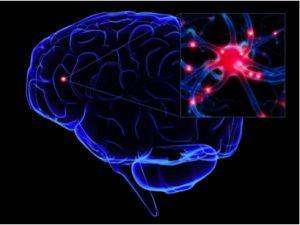Our Ancestors Had it Right
Our modern diet could be the root of our health problems By Joseph YoungModern humans differ from our agrarian ancestors in countless ways, including today’s widespread prevalence of obesity across the globe, which contributes to various diseases and overwhelms modern health care systems. Researchers recently explored the growth of obesity and sought to relate overall weight gain in humans to the contrasting dieting schedules of modern humans versus those of early humans.
Today’s dieting norm involves three high-energy meals per day, at breakfast, lunch and dinner. These meals provide a much higher caloric intake in each sitting than early humans would likely have consumed in a day. Predatory hunters are often only able to eat once or twice a week, meaning they have to be able to endure long spans of fasting.
Predatory hunters are often only able to eat once or twice a week, meaning they have to be able to endure long spans of fasting.
Researchers surmise that the need to function at a high level during those times of fasting played a vital role in our evolutionary history. The rapid cognitive development in early humans most likely evolved for the purposes of acquiring food. Following the Neolithic Revolution, where humans first began to cultivate their own food, humans became accustomed to three meals a day–a trend, which has continued up through the modern era.
In the past fifty years, high calorie ingredients including grains, sugars, cooking oils and corn syrup have become staples in our regular diet. This regular, high caloric intake, combined with a generally sedentary lifestyle has led directly to the widespread obesity levels we have today. To explore possible alternative dieting methods, researchers conducted a study on mice involving three different ways of consuming food: caloric restriction, where the subject simply reduces total caloric intake 20-40%, intermittent energy restriction, where the subject fasts for 3 days per week, and finally time-restricted feeding, where the subject concentrates all daily food intake to a 4-6 hour window.
Of the three consumption methods, intermittent fasting led to the most impressive results. By monitoring neurons in the mice’s brains during the study, resear chers kept track of the mice’s neuronal health and determined that intermittent fasting protects neurons from the effects of severe stress and prevents symptoms of neurodegenerative disorders including Parkinson’s and Alzheimer’s. From this evidence, researchers concluded that by exposing neuronal systems to regular, mild stress, the brain becomes conditioned and can better handle more severe forms of stress.
chers kept track of the mice’s neuronal health and determined that intermittent fasting protects neurons from the effects of severe stress and prevents symptoms of neurodegenerative disorders including Parkinson’s and Alzheimer’s. From this evidence, researchers concluded that by exposing neuronal systems to regular, mild stress, the brain becomes conditioned and can better handle more severe forms of stress.
The results also showed a major drop in inflammation levels in human test subjects. Inflammation is a key contributor to most major diseases including cancer, cardiovascular diseases, diabetes, neurodegenerative disorders, asthma and arthritis. After two months of intermittent fasting, participants with asthma exhibited improved asthma symptoms and increased airway resistance. Similarly, participants with arthritis noticed a decrease in joint pain. The long-term effects of decreased inflammation are not easily observable, however, since inflammation drives many of the most severe diseases, the potential benefits of long-term intermittent fasting are expansive.
Essentially, by emulating the dieting practices of early humans, we could potentially prevent some of the worst illnesses that plague us today.
Works Cited
Photos:
● Ancient Humans
● Neuron